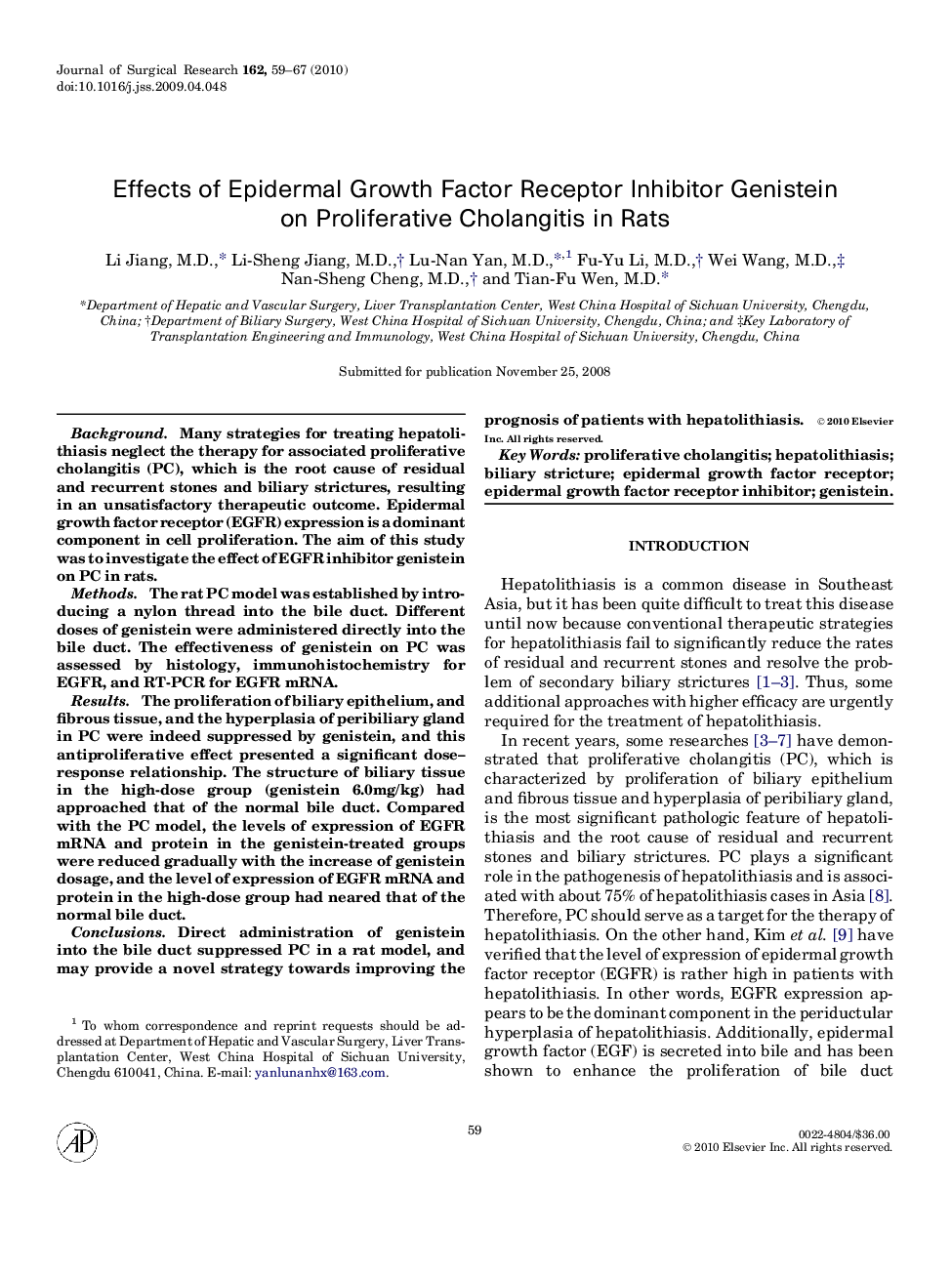| Article ID | Journal | Published Year | Pages | File Type |
|---|---|---|---|---|
| 4302906 | Journal of Surgical Research | 2010 | 9 Pages |
BackgroundMany strategies for treating hepatolithiasis neglect the therapy for associated proliferative cholangitis (PC), which is the root cause of residual and recurrent stones and biliary strictures, resulting in an unsatisfactory therapeutic outcome. Epidermal growth factor receptor (EGFR) expression is a dominant component in cell proliferation. The aim of this study was to investigate the effect of EGFR inhibitor genistein on PC in rats.MethodsThe rat PC model was established by introducing a nylon thread into the bile duct. Different doses of genistein were administered directly into the bile duct. The effectiveness of genistein on PC was assessed by histology, immunohistochemistry for EGFR, and RT-PCR for EGFR mRNA.ResultsThe proliferation of biliary epithelium, and fibrous tissue, and the hyperplasia of peribiliary gland in PC were indeed suppressed by genistein, and this antiproliferative effect presented a significant dose–response relationship. The structure of biliary tissue in the high-dose group (genistein 6.0mg/kg) had approached that of the normal bile duct. Compared with the PC model, the levels of expression of EGFR mRNA and protein in the genistein-treated groups were reduced gradually with the increase of genistein dosage, and the level of expression of EGFR mRNA and protein in the high-dose group had neared that of the normal bile duct.ConclusionsDirect administration of genistein into the bile duct suppressed PC in a rat model, and may provide a novel strategy towards improving the prognosis of patients with hepatolithiasis.
